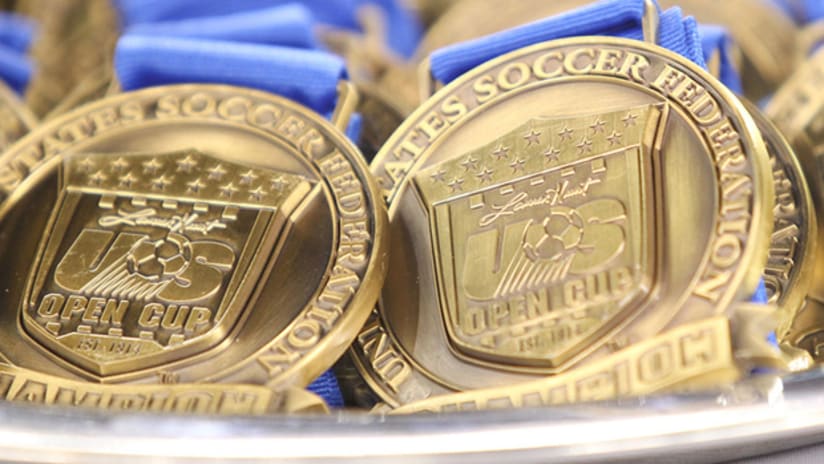For teams across the country, the excitement at preseason training is palpable.
Players are physically and emotionally rested and rejuvenated, embracing the opportunity to start afresh and take their games to another level. Coaches have planned meticulously from a tactical, fitness and personnel standpoint, doing everything possible to strengthen the roster, maximize the talent already available and instill a winning culture.
The anticipation seeps into the world of fans, who have renewed dreams of their club celebrating in trophy-hoisting, confetti-dropping glory at the end of the season.
Yes, the preseason is ripe with enthusiasm, positivity and hope. But for the athletes and coaches who experience it first-hand, it’s also a physical challenge unlike any other.
Such is the case in Scottsdale, Arizona, where Sporting Kansas City has ventured for the 2020 preseason, presented by Children’s Mercy. Everyone involved is chomping at the bit to step back between the white lines—smiles abound, spirits are high and determination is through the roof—but with each passing day, the grind intensifies.
The grind, of course, comes in the way of two-a-day practices or a morning training session followed by weight training in the afternoon.
Ever wondered what an average day at Sporting Kansas City preseason looks like? Let’s jump straight into it.
Breakfast (7-9 a.m. MT)
Comfortably saddled at a resort in Scottsdale, Sporting is treated to a large, private breakfast spread in one of the hotel’s restaurants. Fresh-made eggs, breakfast sausages, avocado toast, oatmeal, yogurt and boatloads of fruit are the name of the game.
The technical staff is usually first to arrive just past 7 a.m., including Manager Peter Vermes and longtime assistants Kerry Zavagnin and Zoran Savic. Players begin filtering in closer to 8 a.m.
First training session (10-11:15 a.m. MT)
After enjoying a complete but not overly heavy breakfast, players, coaches and staff pack into a slew of white seven-seater vans and depart for training at around 9:15 a.m. The drive to Phoenix Rising FC Soccer Complex is 15 minutes, giving players time to gear up at the facility and coaches time to set up goals, flags and cones on the pitch.
The training session itself is intense and purposeful—from warmups and dribbling exercises to shooting drills and scrimmages. One drill leads methodically into the other like clockwork, and not a second behind schedule. Vermes is expressive and impassioned, delivering compliments, encouragement, direction and, when appropriate, constructive criticism. He wants his players to be Sporting fit, but he also wants them to become more intelligent by mastering the tactical concepts that will become so important as the season unfolds. More than anything else, he wants the collective character of the team to shine. For Vermes, it’s team-first or the highway.
Lunch (12-1:15 p.m. MT)
The team returns to the hotel for lunch in the same spot as breakfast. Proteins are of the lean variety, never fried, and normally consist of chicken and fish. A salad and sandwich bar stretches down an entire wall, and an assortment of other nutritious fruits and vegetables—both green and starchy—fill the plates. Beverages available include water, low-fat or nut-based milks, coffee, tea, fruit juices and coconut water. Hydration throughout the day is essential, especially in the warm, arid, sun-drenched climate of Arizona.
Treatments (1:30-3 p.m. MT)
Players can spend the time between training sessions visiting the hotel’s training room, where members of the medical staff provide massages or any other treatment necessary. The training room also functions as a snack room, loaded with protein bars, nuts, fruit and other healthy foods. Players may also meet with coaches during this time, or coaches might meet amongst themselves.
Second training or weightlifting (approximately 3:30-5 p.m. MT)
At this stage in the day, it’s either back to the soccer complex for training session No. 2 or a trip to EXOS, a specialized performance gymnasium in Phoenix.
The afternoon session on the soccer field might not be as intense—perhaps the focus is on formational shape and set pieces—or it might be just as intense as the morning session, complete with small-sided scrimmages and other fast-paced drills full of dynamic movements.
Weight training at EXOS normally consists of low-weight, low-repetition exercises on the lower body, as players have already worked their legs on the pitch. These movements include squats, dead lifts and lunges, among others. The heavier, higher-rep lifts are saved for the upper body—bench presses, pullups, shoulder presses and so on. Each weight session also focuses heavily on core strength, with several different planks and abdominal exercises weaved into the mix.
Snack at the hotel and treatment (5-6:30 p.m. MT)
Upon returning from their second workout of the day, players are famished and have the chance to grab a nutritious snack in one of the hotel ballrooms. Peanut butter protein balls are a staple at this juncture. Players can also head to the training room for treatment if needed.
Dinner (approximately 6:30-8 p.m.)
Unlike the first two meals of the day, players are on their own for dinner. Using the several vans at their disposal, they have a vast array of delicious restaurant options to choose from in a health-conscious town like Scottsdale. Among the most popular spots: True Food Kitchen, Flower Child, Sumo Maya, Chop Shop or any of the several sushi joints in the area.
Relaxation and bedtime (8-10 p.m. MT)
The final hours of a long day give players the opportunity to unwind, call family members back home, play FIFA or catch a few episodes of their favorite Netflix show. Quality sleep is vital in the bid to fully recover and hit the ground running for another day of preseason.



